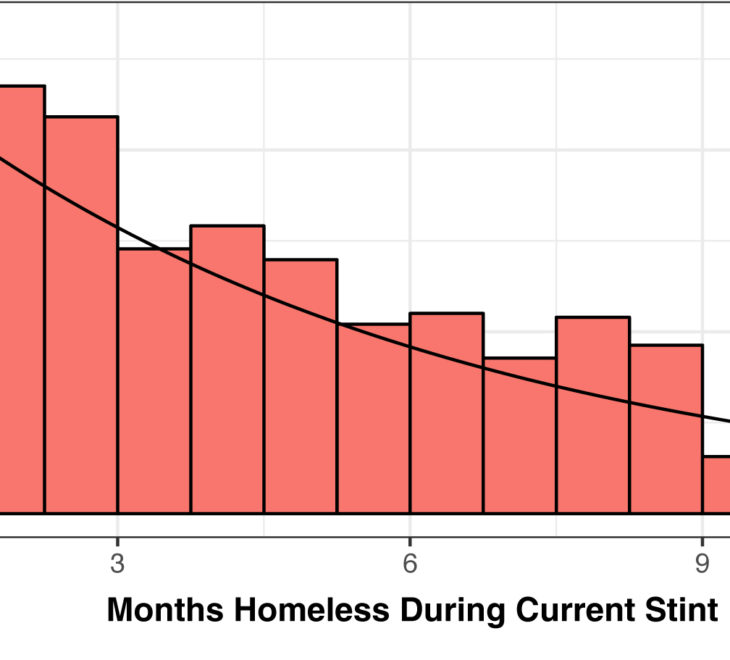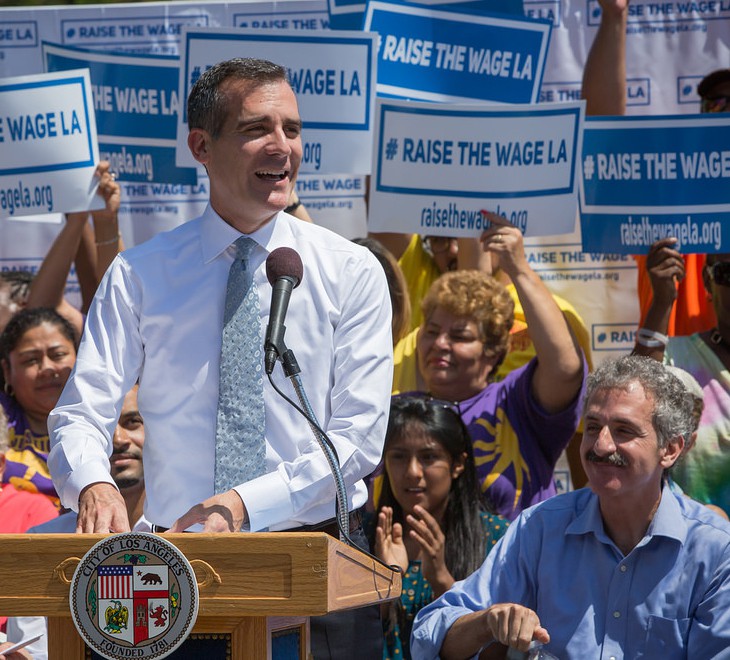Most people agree that union jobs typically pay better than nonunion jobs. But what is not as widely discussed is the role unions play in stimulating the broader economy.
A recent study by my organization, the Economic Roundtable, found that union workers in Los Angeles County earn an average of 27 percent more than nonunion workers in the same job, a figure that does not include differences in other types of compensation like health insurance. The differential is highest in the service sector, where unionized workers earn 64 percent more than their nonunion counterparts.
There are 800,000 union workers in L.A. – 17 percent of the labor force – and their wage differential amounts to an additional $7.2 billion a year in wages. As these workers spend their wages on homes, cappuccinos, movie tickets and child care, their additional buying power creates 64,800 jobs and $11 billion in economic output that would be missing from L.A.’s economy if they earned nonunion wages.
A quarter of L.A.’s households gets by on less than $25,000 a year, and another quarter gets by on more than $100,000 a year – but there is a long, lonely stretch in between these two extremes. The household in the middle of L.A.’s income distribution has an annual income of $51,315. But this is not at the top of a bell-shaped curve. It’s the low point in a trough between the extremes of our polarized economy. And it’s this middle area that is being filled in by union workers.
Forty percent of L.A.’s union workers earns $25,000 to $30,000 a year, and another 40 percent earns $30,000 to $60,000 a year. These clerical workers, bus drivers, teachers and nurses are filling in the missing middle in L.A.’s labor market. Without the wage boost that their unions give them, many would be on the fringes of poverty, or worse.
This year, the cost of living has risen much more rapidly than wages. More expensive fuel and food have caused prices to rise while wages for most workers have lagged. Who is there to help these workers stay afloat if they aren’t part of a collective bargaining agreement? No one.
If the American worker is suffering, the Los Angeles worker is on life support. The cost of living in Los Angeles is 48 percent higher than the national average, but per capita income falls just below the national average. And what’s worse, we’re making less headway in raising residents’ income than California or the nation.
Part of the problem in Los Angeles is our vast and growing informal sector. Our population has grown 16 percent since the collapse of aerospace in 1990, but we still have fewer jobs in our formal economy than we did then. Under-the-table jobs have become L.A.’s growth engine.
L.A.’s unions are providing some remedy. Many union members are employed in industries with high levels of informal employment and high rates of poverty among workers. In these industries, the organizing activities of L.A.’s unions are accomplishing outcomes that have been neglected by the public sector – bringing employers into the formal economy, and into compliance with labor and tax laws. Union wages can bring workers out of poverty and bring them much needed health benefits.
But doesn’t our economy also benefit from low wages? We do get cheaper car washes, lawn care, room additions and restaurant meals than we otherwise would if we had less inequality. But this Labor Day, it is worth considering the costs of this low-road approach. There is the cost to the laborer without workers’ compensation coverage who falls from a roof. There is the cost to taxpayers who must pick up his emergency room bill. There is a cost to children who lack adequate medical care or time spent with parents who are juggling multiple jobs. And there is the opportunity cost of not having a more productive, better paid workforce with more spending power that stimulates our economy and creates jobs.
The need to raise the wage floor is particularly acute in Los Angeles. Los Angeles’ labor unions are the most influential and socially accountable institution to engage many of the industries that employ the region’s working-poor residents. And they are safeguarding middle-class jobs. In doing so, they are not only improving living standards of workers they represent, they are contributing to economic growth for the entire region.













